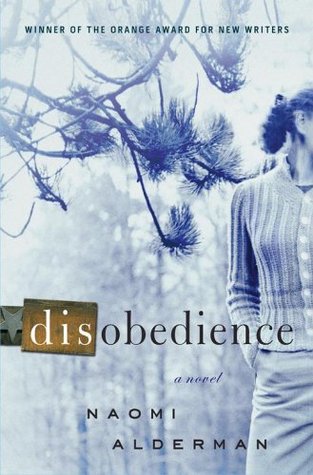WHAT TO EXPECT
* Flowing, well-written prose that examines the inner thoughts, experiences, and perceptions of the three main characters. Alderman occasionally lingers too long on a particular theme or thought, even for literary fiction. This is easily forgiven, however, when you pay her credit for the beautiful and effective symbolism, the brilliant dialogue, and evocative sensory imagery.
* A confronting and important commentary about the role/s played by organised religion in the lives of individuals, families, and villages. This commentary respects religion in many ways, but it may also offend those who do not wish to see tradition or religion questioned - showing where belief can become distorted by humanity's hubris. For me, as an agnostic who enjoys learning about religions from a social and cultural standpoint (not to follow or believe them), this novel was enjoyable, fascinating, and thought-provoking.
WHAT NOT TO EXPECT
* A 'lesfic' romance. The world of lesbian fiction is diversifying but, in my experience, the majority of readers tend to expect a romance that ends happily, a love affair that can overcome absolutely every challenge thrown at the couple, and which takes up the majority of the book in terms of word count. For those readers, this book will disappoint and frustrate them. 'Disobedience' is a literary fiction that focuses on religion, sexuality, and individuality. It is not a lesbian romance and the romantic connection between Esti and Ronit is not the focus of the book. It is part of the landscape, it is important, but it is not the central component.
The new cover for the book, inspired by a film that clearly differs from the book (even what we see of Dovid in the trailer is completely different to the kind-hearted, sympathetic, patient man we get to know in the book) won't help things in regard to setting readers up with false expectations.
Spoiler ahead (I allude to the ending, though don't directly spell it out)...
#
#
#
#
* Also not to expect: A neat, happily-ever-after ending. With the film being released soon, there's been much discussion of the book's ending. I don't think the ending if all that awful, it actually makes a lot of sense because Esti is very much a devout Orthodox Jew. Her inner-thoughts show us, all the way through, how much her faith means to her (such as her worrying about breaking the rules of Shabbat). She is, however, released/freed in many ways, as is Ronit. The powerful use of symbolism makes it clear that both women, and their dear friend Dovid, become much more comfortable with their own lives and their own choices by the end of the book. It's a character piece in which everyone experiences growth. But if you want a story that is tied up with a neat bow at the end, this won't be for you.
Overall, I'm really glad I read 'Disobedience'. I'm such a big fan of books where sexuality is part of the landscape rather than the driving force of the plot. Ronit isn't sent away from her hometown, she just floats farther and farther from orthodoxy - and it isn't even because of her sexuality (which the film seems to be suggesting with the trailer) but rather her generally disquiet spirit. Anything that explores religion with a critical (but not TOO critical) eye is worth reading, in my opinion.
REVIEWED BY REBECCA


 RSS Feed
RSS Feed

